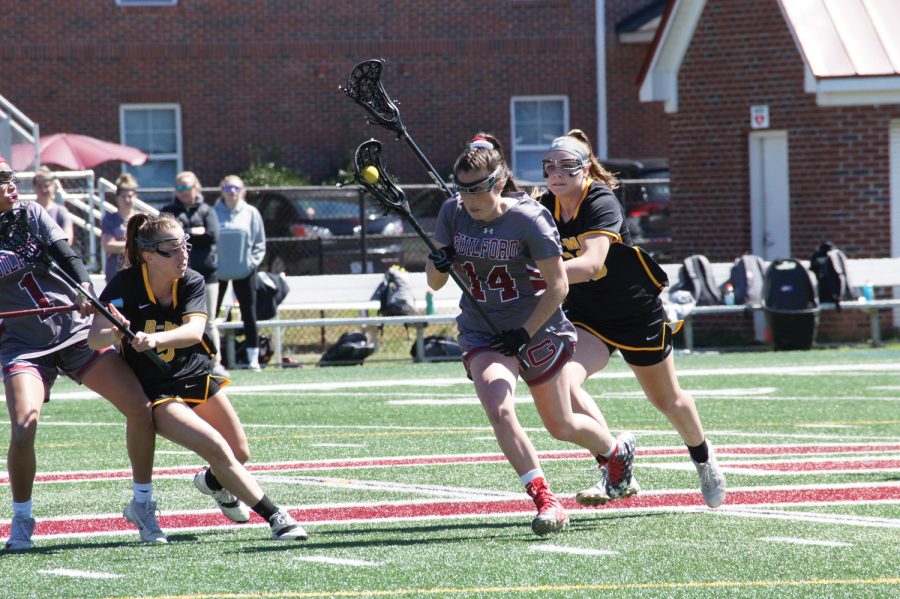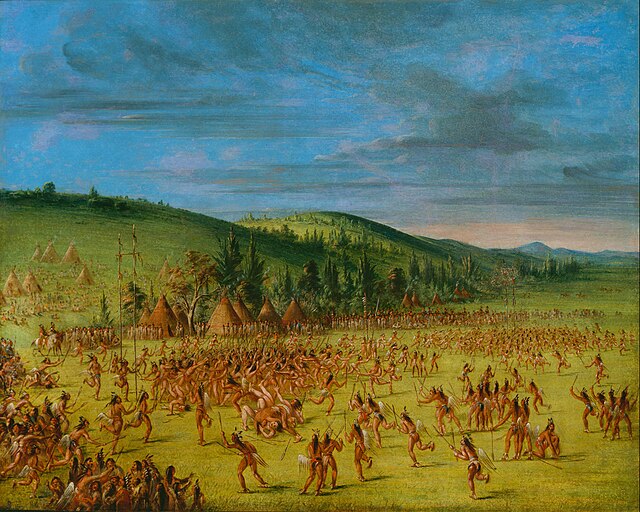Pepper spray. Dogs. Censorship. These are just some of the methods used to stop members of the Sioux tribe and their allies from protesting the pipeline that will run through their land, destroy their water and contribute to global warming.
“The demolition is devastating,” said Standing Rock Sioux Chairman David Archambault II in a statement according to CBS. “These grounds are the resting places of our ancestors. The ancient cairns and stone prayer rings cannot be replaced.
“In one day, our sacred land has been turned into a hollow ground.”
On Sept. 15, members of the Greensboro community gathered outside the International Civil Rights Center and Museum to join the fight.
“It’s been really awesome to come together with a community of people who believe in the same things that you do,” said Tala, one of the attendees at the Greensboro protest.
The Dakota Access Pipeline will run through four states, mostly on native land. As of now, progress has been halted by the Obama administration until the government can assess the environmental impact of the pipeline.
“This is not a good move to make,” said De’shauna Ottley ‘15. “You’re destroying (their) reservation, you’re destroying our land. They should’ve shut it down.
“I’m so sorry that the Native Americans in North and South Dakota have to go through this.”
This is not the first time Native Americans have been mistreated in this country. In fact, native people have been killed and displaced since European settlers first claimed the Americas as part of Europe.
“Ninety-seven percent of the American Indian population was killed,” said senior and protest attendee Devon Murphy-Anderson. “That’s 60 million people. To not call that a genocide when that was so intentional was, in my opinion, very uneducated. It’s important to make sure we’re giving voice to the people who have been oppressed and marginalized for so long.
“It’s important as somebody who’s white to recognize the structures in our country of power. Those structures were implemented at the founding of the United States.”
Organized by the Greensboro Socialists, the goal of the protest was to stand with the Sioux as they protect their land.
“We owe a debt of gratitude to Native Americans who are standing up for their self-determination and, through their resistance, for all of us,” said Anderson McKinley from the International Socialist Organization.
Many of the people at the protest have faced similar struggles in terms of corporate and government greed, which is why they came together to protest in solidarity with the Sioux people. In North Carolina, for example, corporations come for the coal ash. In Venezuela, the government suspended certain constitutional rights due to an economic emergency.
“Your struggle is my struggle,” said Mara Garcia, a protester from Venezuela. “I applaud the efforts and the struggle happening here. This fight is for water. It’s for survival. It’s against corporations.”
Although there is no way to make up for the damage the Native American community, many activists are excited about the many groups coming together.
“Other activist groups like BLM (are) joining in,” said Ottley. “Everyone is coming together in solidarity.”
Although the DAPL has support from organizations such as the American Federation of Labor and Congress of Industrial Organizations, many allies have joined the larger protests, including Thunder Valley Community Development Corporation founder Nick Tilsen, Vermont Sen. Bernie Sanders and Green Party presidential candidate Jill Stein.
One of the main goals of the protest was to spread awareness of the pipeline.
“The important thing is to socialize the information and to socialize the struggle,” said Garcia. “No one is going to defend what they don’t know.”
For activists like Tala, it took a long time to accept that others may not be well-informed.
“Sometimes it’s really frustrating to be in the streets,” said Tala. “We have to realize that some people just don’t have the information, and that’s okay.
“Even though we want to get upset with people for their ignorance and their lack of information, we have to be the light workers and spread that information.”
Overall, the protest succeeded in spreading awareness and uniting activists.
“People can unite and fight back against the corporations that put profit before human being,” said DAPL protest organizer Juan Miranda. “They have shown us that this is a fight that we cannot avoid.
“Most importantly, they have shown us this is a fight we can win.”










